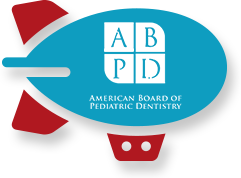Our Top Tooth Tips for a Mouth Healthy School Year
September 7th, 2017
Did you knot that cavities are the leading reason for children missing time at school? Luckily, cavities are almost entirely preventable. As your child gets into the groove at school, it’s important that they stay healthy all year long to avoid missing valuable class time. Here are some helpful tips that will help keep their teeth clean and keep them in class.
Establish a Consistent Brushing Routine

Avoiding cavities begins with proper, routine oral care. The American Academy of Pediatric Dentistry advises that everyone brushes their teeth twice per day, for two minutes each session. By brushing for the proper amount of time, you help ensure that they are cleaning all of the bad bacteria off of their teeth and preventing cavities. Be sure that your child brushes the entire surface of their teeth, including the backside– which is often neglected.
It can be tough to convince your child to brush for the full two minutes, but there are some fun ways to help them achieve better brushing results. Go Online to find tooth brushing videos for children. Most of these videos are at least two minutes long, and help keep kids engaged and focused while they brush.
Reduce Sugar Intake

Too much sugar can cause tooth decay, we all know that. But how does it work? When sugar is consumed, bad bacteria in the mouth feeds off of it and create acids that destroy tooth enamel. Try limiting the amount of sugar your child eats to keep their enamel strong and prevent cavities. Additionally, reduce the amount of starchy carbs that they consume (like bread and chips) to keep their teeth strong. When left in the mouth for too long, starchy carbs eventually turn into sugar and fuel bad bacteria.
Look at beverages when reducing sugar your child’s sugar intake. Try to avoid serving them fruit juice, sports drinks and colas, which all contain a high amount of sugar.
Add More Water
Did you know that saliva is 99% water? Or that saliva is critical in the fight against cavities? This makes it imperative that your child drinks plenty of water so that they can keep their enamel strong, and stay cavity-free. By drinking enough water, your child can avoid dry mouth and ensure that their saliva is produced at an optimal rate.
Floss Daily


Brushing twice per day is a great way to clean most of the surface area of teeth, but it doesn’t clean all of it. The AAPD recommends that everyone floss once per day, and to floss between every tooth. Flossing clears food debris from the cracks between teeth. Food debris can fuel bad bacteria that cause plaque buildup and cavities. Try to floss with your child at first, so that you can show them the ropes. Once you’re confident that they can do it on their own, implore them to floss nightly before bed.
Add Dairy
Dairy products like milk, cheese and yogurt are a great source of calcium, which plays an important role in strengthening teeth. In fact, the body stores 99% of its calcium in bones and teeth! Milk and dairy products reduce tooth decay by strengthening tooth enamel – the first line of defense against cavities. Try giving your child the recommended amount of dairy products daily. We suggest milk, cheese and yogurt as excellent sources of calcium that kids love.
Visit Our Office
Tooth decay is painful and can affect the overall health of developing mouths, which is why early treatment is the best way to handle cavities. Routine checkups every six months are the best way to stay on top of your child’s oral health.
Schedule an appointment with our office today to check your children’s oral health, and to begin them down the path to a healthy smile.

